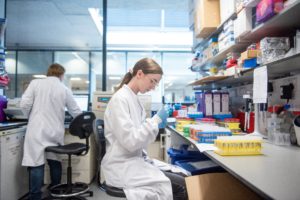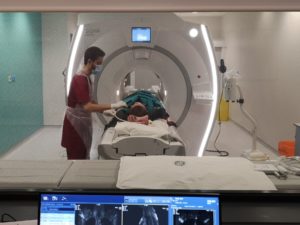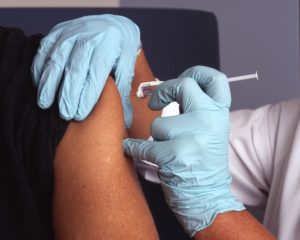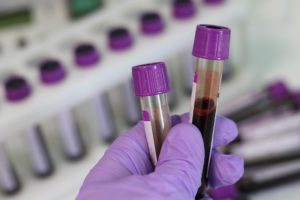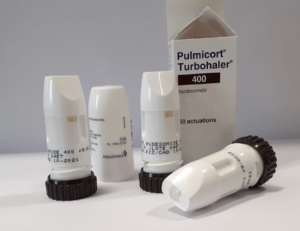The National Institute for Health Research (NIHR) has published a case study on QCOVID, a clinical risk prediction model, which has played a key role during the COVID-19 pandemic in identifying those people at greatest risk. QCOVID, developed with support from the NIHR Oxford Biomedical Research ... READ MORE
COVID-19 News
Oxford BRC’s ability to deliver rapid COVID-19 research response highlighted
Oxford Biomedical Research Centre (BRC) researchers have highlighted how the BRC’s infrastructure gave it the agility and capacity to respond rapidly with research projects to tackle COVID-19. In a commentary published in the open access BMC Health Research Policy and Systems journal, the ... READ MORE
COVID-19 blog: accelerating testing with robotics
PhD student Kevin Chau, who works in the Oxford BRC’s Antimicrobial Resistance and Modernising Microbiology Theme, has played his part in the pandemic response as part of the Modernising Medical Microbiology team at the John Radcliffe Hospital in Oxford. In this blog post written for the Medical ... READ MORE
Review highlights impact of Long COVID on cardiovascular system
The wide-ranging effects of long COVID and the associated issues for healthcare providers have been revealed in a new review of the major studies into the condition, which specifically highlights the impact of long COVID on the cardiovascular system. The review, published in the European Heart ... READ MORE
Lung abnormalities found in long COVID patients with breathlessness
Researchers have identified abnormalities in the lungs of long COVID patients who are experiencing breathlessness that cannot be detected with routine tests. The EXPLAIN study, which involves teams in Oxford, Sheffield, Cardiff and Manchester, is using hyperpolarised xenon MRI scans to ... READ MORE
Drug could more effectively treat patients hospitalised with COVID-19 pneumonia, research finds
A proof-of-concept trial involving Oxford researchers has identified a drug that may benefit some patients hospitalised with COVID-19 pneumonia. The CATALYST Trial tested the rheumatoid arthritis treatment namilumab as a potential therapeutic to treat patients who are hospitalised with COVID-19 ... READ MORE
People with long COVID after hospitalisation face limited recovery after one year
People who were hospitalised with COVID-19 and continued to experience symptoms five months later show limited further recovery one year after hospital discharge, according to the latest results of a major national study looking at the long-term health impacts of COVID-19 on hospitalised ... READ MORE
COVID-19 infection more likely than vaccines to cause rare cardiovascular complications
Researchers have reported the results of the largest ever study to compare the risks of cardiovascular events - such as myocarditis, pericarditis, and cardiac arrhythmia - between different vaccines and COVID-19 infection, and the first to investigate the association between cardiac events and the ... READ MORE
RECOVERY Trial launched in South Africa
The world’s largest clinical trial investigating treatments for COVID-19 has now been launched in South Africa, with the first patient recruited today. Since March 2020, the RECOVERY Trial, which is supported by the NIHR Oxford BRC, has discovered three effective treatments for COVID-19: the ... READ MORE
Study uncovers gene that doubles risk of death from COVID-19
University of Oxford researchers have identified the gene responsible for doubling the risk of respiratory failure from COVID-19. Sixty percent of people with South Asian ancestry carry the high-risk genetic signal, which could partly explain the excess deaths seen in some UK communities, ... READ MORE
QCOVID study identifies vaccinated groups at highest risk hospitalisation and death
Researchers from the University of Oxford have identified which vaccinated people are at greatest risk from severe Covid-19 leading to hospitalisation or death, from 14 days after the second dose of vaccination, when substantial immunity should be expected. The research used the QCovid tool, ... READ MORE
RECOVERY Trial paper wins BMJ’s Research Paper of the Year Award
The RECOVERY Trial, the world’s largest randomised trial of potential COVID-19 treatments, has been announced as the 2021 winner of The British Medical Journal’s prestigious UK Research Paper of the Year Award. The award recognises original UK research that has the potential to ... READ MORE
Moonshot initiative to develop affordable COVID-19 antivirals gets funding boost
The COVID Moonshot, a non-profit, open-science consortium of scientists from around the world dedicated to the discovery of globally affordable and easily-manufactured antiviral drugs against COVID-19 and future viral pandemics has received key funding of £8 million from the Wellcome Trust, on ... READ MORE
MAIT Cell activation may play role in COVID-19 deaths, study finds
Oxford researchers have found a correlation between deaths from COVID-19 infections and a poorly coordinated systemic immune response, as well as increased activity by Mucosal Associated Invariant T cells, or ‘MAIT cells’. A study involving Oxford BRC-supported researchers published ... READ MORE
Study investigates responses to COVID-19 treatment in chronic lymphoid leukaemia patients
The COVID-19 pandemic has led to understandable anxiety within the blood cancer community about how their illness may affect their ability to overcome COVID-19 infection. Members of the Oxford Centre for Haematology have led a collaborative research project looking at the response of patients ... READ MORE
New study launched to understand vaccine escape
Oxford researchers will be involved in a major new study seeking to understand why some people become infected after vaccination or prior infection while others do not Oxford BRC-supported investigators already involved in the Protective Immunity from T-Cells in Healthcare workers (PITCH) study ... READ MORE
Vaccination still best protection, but less effective against Delta variant, study finds
The latest findings of an ongoing national study of COVID-19 immunity in households across the UK has found that the Pfizer-BioNTech and Oxford-AstraZeneca vaccines offer good protection against new infections of the Delta variant of concern, but that effectiveness is reduced compared with the Alpha ... READ MORE
Second study confirms benefits of budesonide in early stages of COVID-19
A UK-wide clinical study has confirmed the findings of an earlier Oxford BRC-supported study showing that the early treatment with the inhaled asthma medication budesonide speeds up recovery from COVID-19 and reduces the risk of hospitalisation and death. The latest study – part of the PRINCIPLE ... READ MORE
BRC-supported study receives Best Research Paper Award
A leading cardiology journal has named an academic paper written by Oxford BRC-supported researchers as its best research paper of 2020. The paper – which found that two common heart medication do not increase the risk of COVID-19 hospitalisation – was named by the BMJ Heart journal as the ... READ MORE
Liver problems common among COVID-19 patients, study finds
A study by Oxford University researchers has found that liver problems are common among patients with COVID-19. Patient data revealed that baseline hypoalbuminemia (an possible indication that the liver is producing low levels of albumin) and rising alkaline phosphatase (ALP), which can be a ... READ MORE
- « Previous Page
- 1
- 2
- 3
- 4
- …
- 7
- Next Page »

